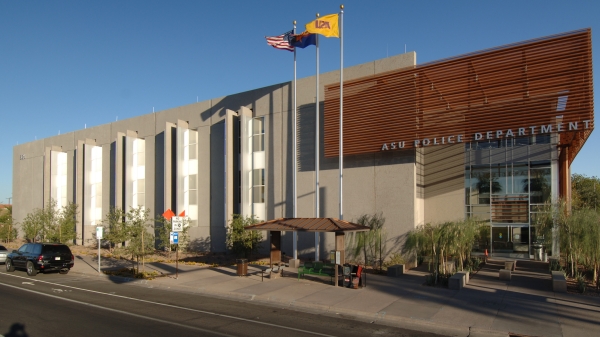Rallying for critical languages
Restored funding to national program gives ASU students chance to study lesser-known but important languages

Since 1991, the Critical Languages Institute at Arizona State University has been providing students with the opportunity to expand their world view through the study of less commonly taught languages.
However, in the fall of 2013, the center’s role as a crucial element of a well-rounded institution was threatened when it was announced that funding for the Title VIII program — which had supported language training and research on Eastern Europe and Eurasia since 1983 — would not be appropriated for the federal fiscal year 2013.
Kathleen Evans-Romaine, director of the Critical Languages Institute who manages the Title VIII Fellowship program at ASU, was dismayed at the news.
"Without Title VIII funding, the number of students equipped to speak the languages and navigate the cultures of some of the world’s most critical regions — Russia, the Balkans, the Caucasus and the countries immediately north of Afghanistan — dropped precipitously. The capacity of the United States and American businesses to work and communicate effectively in some of the most sensitive parts of the world suffered as a result,” she explained.
And she wasn't the only one with deep concerns regarding the matter.
“It was a shock,” said Lynda Park, chair of the Association for Slavic, East European, and Eurasian Studies, which advocates for federal funding to allow universities such as ASU to offer such courses.
“Title VIII funding has been so crucial for our field since it was established in 1983. I think you could probably talk to anyone of that generation, especially in the U.S., and they will all tell you they were impacted by that funding. I certainly was; I did my research on Title VIII funding.”
In response to the funding cut, Evans-Romaine, Park and others rallied for its restoration. An advocacy committee was formed and a letter-writing campaign was organized to address both Congress and U.S. Secretary of State John Kerry, urging them to restore funding to the Title VIII program. Even ASU President Michael Crow lent his support in the form of a letter.
Their efforts paid off and in April 2015, Park announced that Title VIII funding had been restored, although at only $1.5 million, less than half of the 2012 program budget.
“Still, we were delighted to have it back,” said Park. “Once [funding] gets completely zeroed out, it’s really difficult to get it back.”
Because of the smaller-than-usual amount, only four institutions were appropriated funds for the Title VIII program — and ASU was one of them.
“ASU has a great language program, which is highly regarded by everyone in the field, as well as the people who run the [Title VIII] program in the U.S. State Department,” Park said.
For a list of languages offered by the Critical Languages Institute for the 2016 academic year, click here.
The Critical Languages Institute is a project of the Melikian Center, an instructional and research unit of the College of Liberal Arts and Sciences.
More University news

ASU partners on first-of-its-kind $90M NSF research hub for transformational learning, education research
Access to better data leads to better research. When it comes to data about personalized learning, the more researchers know…

ASU Police Department honors outstanding service with annual awards
By Jason Weber, ASU Police Department The Arizona State University Police Department recognized department members for their…

ASU Academic Alliances, Maricopa Community Colleges boost student mobility between institutions
The Maricopa Community Colleges stand as one of the leading sources of transfer students to Arizona State University, with ASU…